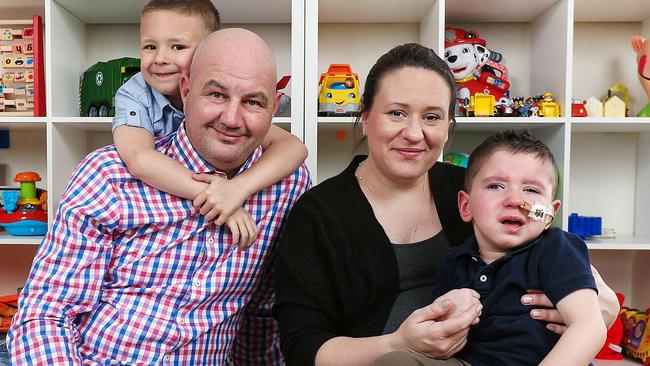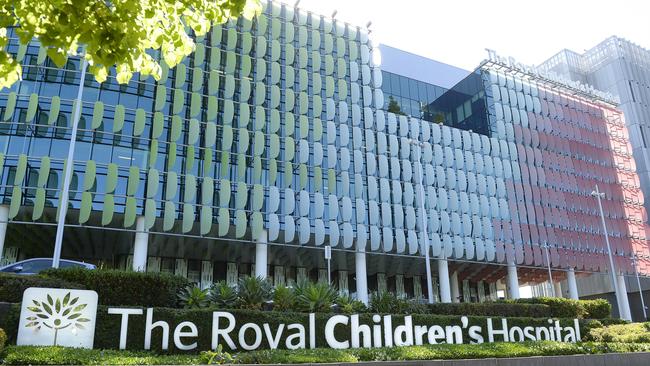Revolutionary new genetic tests, life-saving drugs for children’s brain cancer
MELBOURNE brain cancer toddler Kristian Kozul’s life was saved by a revolutionary test after being given grim prospects by doctors. Now, the groundbreaking testing and new life-saving drugs will be available to all children with the disease.

VIC News
Don't miss out on the headlines from VIC News. Followed categories will be added to My News.
CHILDREN with the worst types of brain cancer will receive new life-saving drugs and groundbreaking genetic testing as part of a $5 million boost from the federal government.
More than 50 children across Australia with high-risk brain tumours will go into the cutting-edge clinical trials aimed at identifying the drugs most likely to attack each patient’s type of cancer.
BRAIN CANCER TREATMENT HOPES RAISED
BEREAVED PARENTS WIN CHILDREN’S BRAIN CANCER DRUGS TRIAL
Prime Minister Malcolm Turnbull and Health Minister Greg Hunt will on Monday announce in Melbourne that the government will provide the extra funding to give more children the opportunity to participate in the new program.
“This will be life-changing for children with brain cancer. This is about giving each and every child the best possible chance at a better life,” Mr Turnbull told the Herald Sun.
All eight Australian children’s hospitals will be involved in the trials, including Royal Children’s Hospital and Monash Children’s Hospital in Victoria.

The funding will provide potentially life-saving tests and drugs for children including Melbourne boy Kristian Kozul, who was given grim prospects by his doctors.
After being diagnosed with brain cancer at just 15 months old, Kristian underwent intensive chemotherapy, which failed to stop the aggressive tumour.
The Deer Park toddler’s family was then given the opportunity to undergo revolutionary DNA sequencing on his tumour samples, which uncovered the extremely rare NTRK fusion, with no other case on databases in the world of that type of cancer.
Kristian, now aged two, was put on a new drug called larotrectinib, as part of a clinical trial in Sydney in November last year.
Eight months later, the tumour has stopped growing and remains stable.
“We had no other options and the trial was opening up in Sydney, so we flew there all together as a family for three weeks,” mum Marie said.
“When he had his first MRI after being on the drug at the end of December, it showed the tumour wasn’t getting bigger, and it was actually a bit smaller.
“We’re incredibly fortunate that the government decided to fund these trials and Kristian qualified for it, because what he has is extremely rare and if they didn’t fund it, the reality is my son would have passed away.”
NEW CANCER TREATMENT TRIAL FOR KIDS
CARRIE’S WOOLLY EFFORT FOR CANCER CAMPAIGN
Mr Hunt, who will on Monday make the announcement at the Peter MacCallum Cancer Centre alongside Mr Turnbull, said Australia was within reach of the “next wave” of brain cancer treatments.
“Our goal is to lead the world in clinical trials and new research to help save and protect beautiful young lives,” Mr Hunt said.
Under the Zero Childhood Cancer program, kids with high-risk brain cancers will receive genomic and biologic tests to identify the drugs needed for their cancer.


